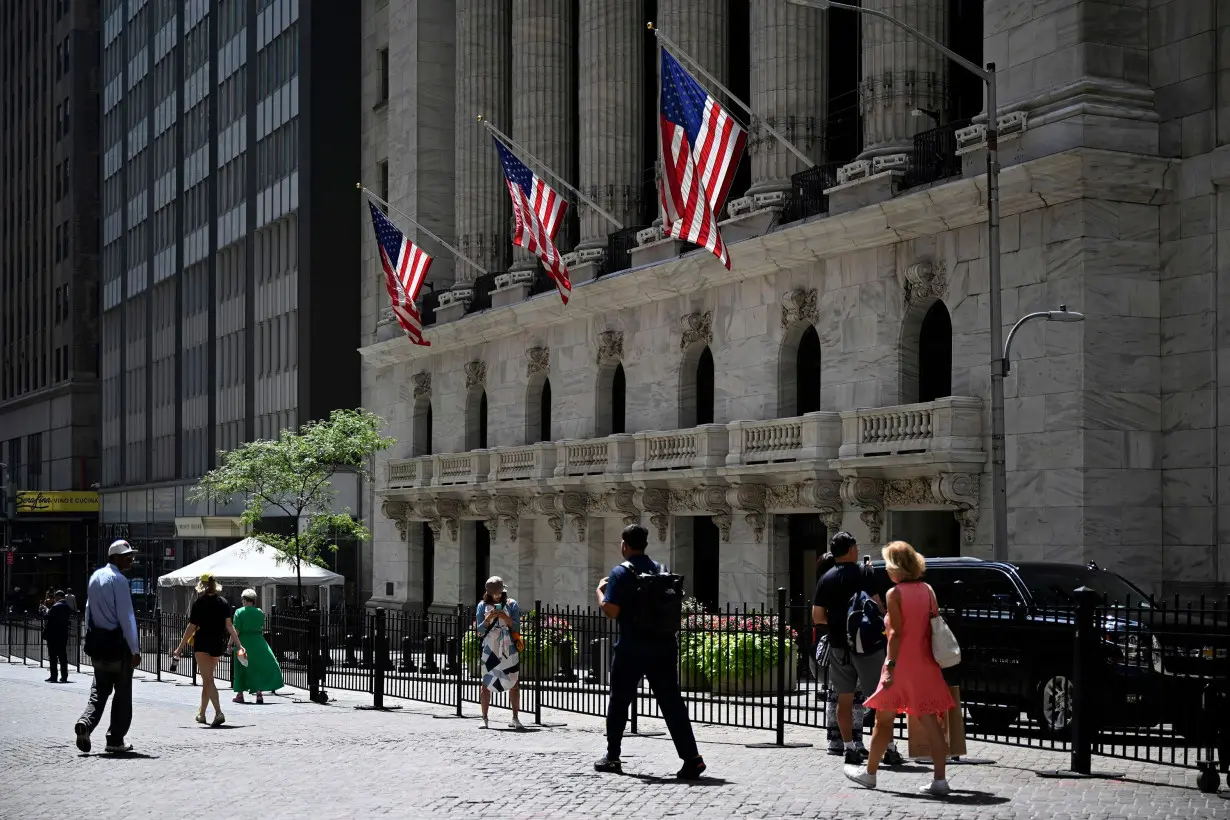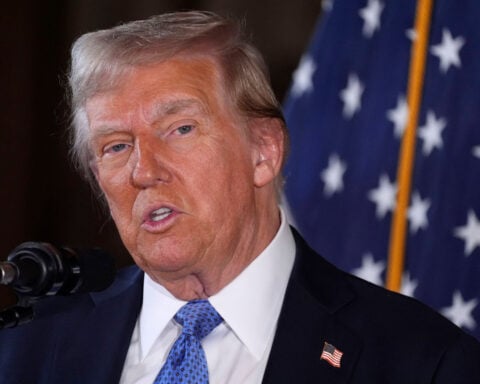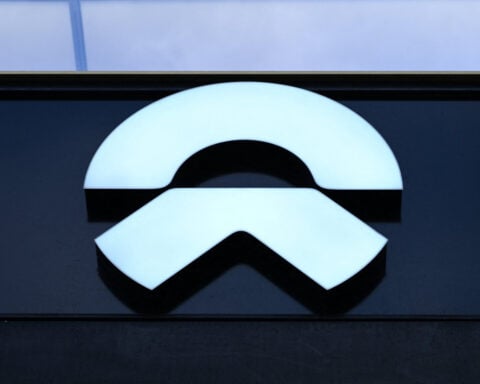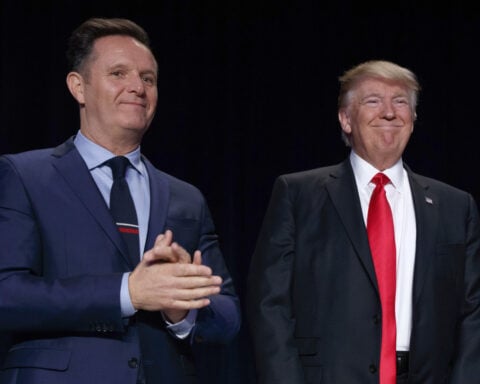New York (CNN) — Wednesday’s Consumer Price Index report was the last bit of hope for investors clamoring for a half-point rate cut from the Federal Reserve when it meets next week.
That hope has now all but faded, and Wall Street took it hard. But traders managed to shake off their fears by the end of the day.
Around two hours after the August CPI report was released, which showed the annual pace of price increases cooled to 2.5%, the lowest level since February 2021, the Dow plunged by as much as 700 points, or 1.7%. But with an hour of trading left for the day, the Dow erased those losses, just barely in positive territory. The S&P 500 and Nasdaq Composite, which were similarly down earlier in the day, also turned positive Wednesday afternoon.
After seesawing throughout the day, the Dow ended Wednesday about 124 points higher, or 0.3%. The S&P 500 gained around 1% while the Nasdaq Composite added 2.2%.
CNN’s Fear and Greed Index, which measures seven barometers of market sentiment, at first moved further into “fear” territory Wednesday morning, staying there through the market close.
Large market swings like these are far from unusual for the month of September, which has historically been volatile for stocks.
The CPI report also showed that on a monthly basis, prices rose 0.2%, unchanged from July.
But what appeared to garner a lot more attention was the 0.3% monthly rise of the core CPI gauge, which excludes food and energy. That exceeded economists expectations for a 0.2% rise. Fed officials pay close attention to core inflation readings because they can offer more clarity on where prices are headed longer term.
The higher-than-expected rise in core inflation will likely cause central bank officials to proceed more carefully when deciding whether to cut interest rates and by how much.
On Tuesday, traders were pricing in a 34% chance the Fed would cut rates by a half point. But after the CPI data was released Wednesday morning, traders priced in a 15% chance that would happen. Now they’re pricing in an 85% chance of a quarter-point cut this month as well as a higher likelihood of a quarter-point cut versus a half point at November’s meeting.
Investors generally prefer when interest rates are lower because it means companies can borrow money more cheaply, which often increases profitability.
A post-debate reaction?
In addition to the inflation data, investors are likely also weighing the prospect of Vice President Kamala Harris’ chances in the presidential election after Tuesday night’s debate, where many commentators from both parties felt Harris outperformed former President Donald Trump.
Among Harris’ economic proposals is lifting the corporate tax rate to 28% from the current 21%. While that’s less than the 35% rate that Harris proposed during her 2020 presidential campaign, it would still raise costs for business and dig into profit margins. As a result, that could cause companies to put off new investments and curtail hiring plans.
As stocks settle after the trading day, levels might change slightly.
The-CNN-Wire
™ & © 2024 Cable News Network, Inc., a Warner Bros. Discovery Company. All rights reserved.

 Isolated Chicago communities secure money for a coveted transit project before Trump takes office
Isolated Chicago communities secure money for a coveted transit project before Trump takes office
 Caitlin Clark effect hasn't reversed the decades-long decline in girls basketball participation
Caitlin Clark effect hasn't reversed the decades-long decline in girls basketball participation
 The water was their livelihood. Now Thailand's sea nomads work to preserve a vanishing way of life
The water was their livelihood. Now Thailand's sea nomads work to preserve a vanishing way of life
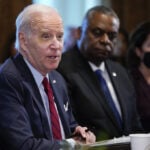 China says US is 'playing with fire' after latest military aid for Taiwan
China says US is 'playing with fire' after latest military aid for Taiwan
 Winter is hitting Gaza and many Palestinians have little protection from the cold
Winter is hitting Gaza and many Palestinians have little protection from the cold
 China calls Taiwan a 'red line', criticises new US military aid to island
China calls Taiwan a 'red line', criticises new US military aid to island
 Trump says he might demand Panama hand over canal
Trump says he might demand Panama hand over canal
 China's Nio says new Firefly EV to go on sale in Europe in H1 2025
China's Nio says new Firefly EV to go on sale in Europe in H1 2025
 Howard throws 2 TD passes to Smith to help Ohio State rout Tennessee 42-17 in CFP
Howard throws 2 TD passes to Smith to help Ohio State rout Tennessee 42-17 in CFP
 JuJu Watkins and No. 7 USC hold off Paige Bueckers and fourth-ranked UConn 72-70
JuJu Watkins and No. 7 USC hold off Paige Bueckers and fourth-ranked UConn 72-70
